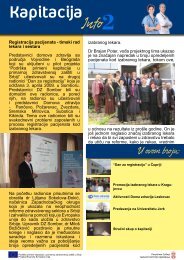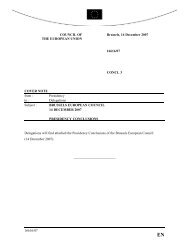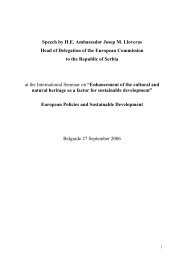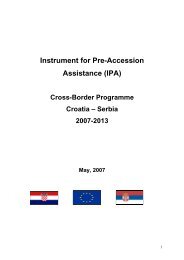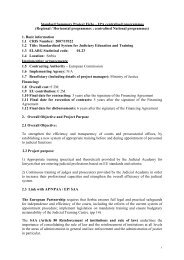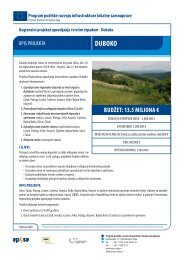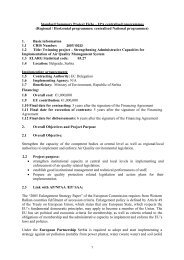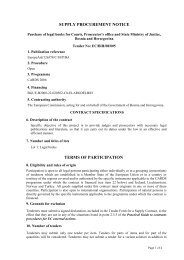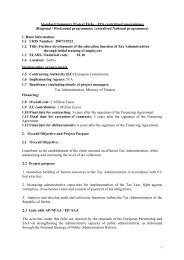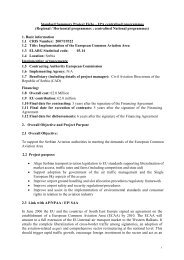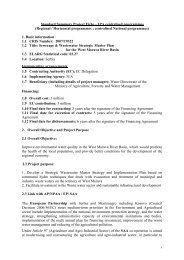YOUR SCHOLARSHIP IN EUROPE
YOUR SCHOLARSHIP IN EUROPE
YOUR SCHOLARSHIP IN EUROPE
You also want an ePaper? Increase the reach of your titles
YUMPU automatically turns print PDFs into web optimized ePapers that Google loves.
134<br />
Romania<br />
Your Scholarship in Europe 2008-2009<br />
Long-term university education (4-6 year programmes provided by universities, academies<br />
and conservatories): courses leading to a diplomã de licenţã (university diploma,<br />
equivalent to a fi rst degree). The duration of long-term study courses varies by fi eld:<br />
• 8 semesters (4 years) for sciences, humanities, economic and social sciences, law,<br />
political sciences, art and sports;<br />
• 10 semesters (5 years) for engineering, pharmacy, agriculture and forestry;<br />
• 12 semesters (6 years) for general medicine, dental medicine, veterinary medicine and<br />
architecture.<br />
Graduate Education<br />
Graduate education offers specialisation or an extension of the education provided in universities.<br />
Graduate study programmes include:<br />
• Advanced studies (1-2 years) for university graduates; graduates are awarded a degree<br />
diploma.<br />
• Masters studies (1-2 years) for university graduates.<br />
• Graduate academic studies (2-3 years) organised by graduate study schools attached<br />
to universities or functioning as autonomous units; studies are organised on an interdisciplinary<br />
basis aimed at increased professional specialization.<br />
• Doctorate studies (4-6 years) offered by universities and research institutes accredited<br />
as such; doctorate courses are organized as day courses or night courses. The academic<br />
title of doctor granted by the institution is validated by the National Council for<br />
the Attestation of Academic Titles, University Diplomas and Certifi cates.<br />
• Continuing education university courses lasting no more than one year, and addressed<br />
to certain employment categories for those without a university diploma.<br />
Higher education in Romania has the following forms: regular studies, reduced frequency<br />
courses and Open Correspondence Courses.<br />
TYPES OF DIPLOMA<br />
As for certifi cation, there is a wide range of academic graduate and post-graduate diplomas<br />
and distinctions that can be obtained after studying in Romania:<br />
• Certifi cat de studii – A certifi cate awarded to students who have completed their studies<br />
in higher education, but have failed to pass the exam to receive their degree.<br />
• Diplomã de absolvire a unui colegiu – Diploma certifying the completion of studies<br />
at a college and the relevant fi nal exam.<br />
• Diplomã de licenţã – University diploma equivalent degree.<br />
• Diplomã de magister/master – Master diploma.<br />
• Diplomã de studii aprofundate – Diploma of advanced studies.<br />
• Diplomã de studii (academice) – Diploma of graduate academic studies. This<br />
kind of diploma is awarded by a school of graduate studies, within a higher educa-



